I met Nolan Dalla when I was lucky enough to get hired to cover the 2007 World Series, which since my employer wasn’t allowed any real access or filming capabilities just meant I got to hang around in the press room and write some fun stories that weren’t really news. Now given my circumstances I should have used that time to try and leverage that opportunity into a job with a good poker site. Instead, I mostly decided to see if I could play poker for a living and lost more than the $5000 I was paid to be there.
I spent some fun time with Phil Laak, who is the nicest and most entertaining poker player I’ve ever met and you can hit the above link to read about it.
The time best spent and the most luck I had was meeting Nolan Dalla.

Nolan Dalla was in charge of the press room. He was working very hard. He was very busy. He somehow still made time to talk to me.
People who do not like me will pejoratively call me a know it all. Most will nevertheless have to admit that even if I act that way (and that would be a fair debate) that indeed I know a lot.
Just the other day my mother asked me if there was anything I did not know, and I admitted that in fact I knew nothing about geography. If we play trivial pursuit together, I will get every slice of the pie almost immediately, and then lose to you failing to answer geography questions. Hilariously, my mom randomly mentioned Istanbul, to which I had to admit that I did know something about Istanbul, but the only reason I did was because of this.
Now Nolan knows perhaps more about everything than any single person I’ve ever met. He knows and witnessed epic stories about gambling and Los Vegas that he perhaps is the sole keeper of if and when he is willing to tell those stories. He co-wrote one of the best books I’ve ever read, One of a Kind: The Rise and Fall of Stuey ‘The Kid’ Ungar, The World’s Greatest Poker Player”.
I asked him two questions about Ungar and he gave me perfect and in the second case a hilarious answer.
One: I wanted his thoughts on the highly panned Michael Imperioli vehicle “High Roller: The Stu Ungar Story.” which I too thought was bad except for one brilliant brilliant gin scene that probably never took place with Pat Morita, that showed both Ungar’s genius and his reckless nature as a gambler. Nolan, which he did not reveal to me, was actually at that time trying to do that and to his credit he did not care about how much money he made on it. He just wanted a good, well financed movie to actually be made on the subject. Now had nearly anyone else made that claim, I would have called bull shit, but I would never say that about Nolan, because despite the limited time I’ve spent in his presence, in that time I became fully convinced of the man’s true integrity. What he did tell me, which is also in his telling of his efforts to get that film made in the above link was that he thought that John Leguizamo was the perfect person to portray Stu Ungar.
Two: In his book, you will learn that Stu, who is pretty much by consensus the greatest gin player of all time (although also perhaps the worst hustler of all time) from 1978-1979 entered five gin tournaments and won three. In the other two he placed in the top four, and in one of those he did not win because he did not show up for the semifinal. He was then banned from those gin tournaments. Naively, I asked Nolan how they could ban someone for being too good, and his response, which I am paraphrasing from memory was like I said both funny and sad. “What you have to understand is that those gin tournaments were set up by mostly rich retirees looking mostly to have a good, relaxing time. Stu entered those tournaments and thrashed everyone he played and while doing it he berated his opponents incompetence constantly and as viciously as only he could! So they banned him.”
So I talked to Nolan as much as I could given the amount of time his busy, hard working schedule allowed. Had it been up to me I would have spent the entire time I was there doing nothing, but talking to Nolan and saved over $5,000. Hell, I would have paid him $5,000 dollars for the amount of time he did spend talking to me. He can talk knowledgeably and evertainingly about anything, and if you are indeed fortunate he will do so with you.
Paul McCartney and Ringo Starr were in town to launch off the Cirque du Soleil show “Love,” and we talked a lot about the Beatles, and of course, there is nothing I enjoy more than talking about the Beatles especially with someone who knows and loves them as much as me. We talked about a lot of things and I enjoyed every second of it.
Something even more special me, especially given how many people the man has met in his life and that list easily includes many thousands who have achieved more and been more memorable than me, a few years later I conned my way into the WSOP of poker press room hoping to see him again. He was there and he instantly remembered me, which was amazing and touched me as much as nearly anything has touched me in my life.
I haven’t been in his presence since that day. Facebook as evil as it is, is still the best way for me to find and keep in touch with people who were once and are still now special to me, and it’s let me keep up with Nolan, so no matter how much of my personal data they’ve accumulated and used for evil purposes, I have that and to me it’s been worth it.
Nolan has a great blog , I’m sure it gets way more hits than mine, which it should. Nolan is going to do a long range project in which he picks his list of 100 essential albums and will apparently go into detail explaining why they are essential, which I’m sure he will do exceptionally. To my great honor he dared me to do the same.
Now “essential” album lists are fine, it’s mostly something a guy from Esquire will compile with much research from the internet, and probably will include a lot of albums that writer has never heard. Nolan and I could likely make our list in a closet with no internet access off the top of our heads. Yes, I’m jealous that the people who write these lists often do so with much internet research over a frenzied few days, while I usually just write about what I dig from the years I scoured libraries reading things on microfilm and spending money I barely had to listen and decide on my own with my own ears.
Now as to essential, that’s a hard word for me to define. Historical impact or quality is one question I’d ponder, but in the end it will be what is essential to me.
I know a ton of music going back to at least 1900. Nolan didn’t specify genre, but I don’t listen to classical (too many different versions of the same masterworks that vary in quality based on which recording of it you hear and who did it), jazz (I know a lot, but there is indeed a lot and I mostly just know what I love the best – although a guy once asked me what the consensus best jazz album of all time was and when I said “Kind of Blue,” he thought I said “Kind of Blew.” My favorite Jazz album? John Coltane’s “Giant Steps,” and I had to listen to it at least 15 times before I got it.)
So I will concentrate on what I know best post Elvis rock and roll, pop, rhythm and blues, and anything that may have emanated from it which will include rap.
I won’t do long reviews because, I’ve been really busy lately and I do that all the time.
Here is a crucial admission that most hipster music snobs like me will not make. I have gaps.
Enough of the right people have told me that Tom Waits is brilliant and as such it must be true, but I can not name a single Tom Waits song off the top of my head.
This will make my dear friend Nolan’s head explode. One of my favorite songs ever is “Jackie Wilson Said (I’m in Heaven When You Smile)” by Van Morrison. I once lost a $100 dollar bet because I refused to believe that the word “fantabulous” was in the song “Moondance” (I came very close to winning that $100 dollars back, but Leon Lett went Leon Lett and Don Beebe was there to make me pay for it). Worst of all, please Nolan put away the gun, I have not heard a single song off of “Astral Weeks.”
I have never had the courage to listen to Trout Mask Replica, just as I’ve never had the courage to attempt to conquer the novel “Naked Lunch.” I just don’t get Frank Zappa and have not put in the work to try.
I like many Velvet Underground songs (“Femme Fatale” is likely my favorite), but to me VU and Steely Dan (none of whose songs I like) are the two most overrated bands in rock history. Whether Steely Dan is even rock is irrelevant to me.
I hate everything the Grateful Dead ever recorded and indeed everything ever recorded by a fan at one of their endlessly boring shows, one of which I did see.
I have no use for whatever is considered to be a “Jam” band. I’m a pop guy mostly even when it comes to the more complex recordings by the artists I love. I’ve often said that “A Day in the Life” is not 1000 times better or even obviously better than “Please Please Me” simply because it took 1000 times longer to record.
I love a lot of Neil Young songs (“Only Love Can Break You’re Heart” is my favorite), but again a big gap I have so I can’t name an album.
“Sgt. Pepper’s Lonely Hearts Club Band” is maybe the most significant release of the era I will be discussing but it won’t be here, and I love almost all of it.
Purists will not pick compilations, but I think they are often the best representation of an artist’s work so I will try to pick what I consider the best of the lot and in many cases it may just be the one I grew up on. If I had to say which albums turned me on to the Beatles I would have to say their Red and Blue compilations, which may or may not exist anymore.
So I’ll start first with my favorite artists and see how many I come up with. This list has numbers, but those numbers do not imply a ranking.
My warning for reading any list like this by a writer. There is a Godwin’s Law. The second you read the word “seminal” you should immediately stop reading.
The Kinks
One:
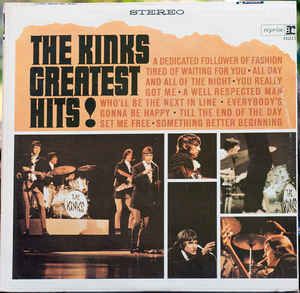
John Lennon first used recorded feedback on purpose on “I Feel Fine,” but for one note for that lasted 5 seconds! Ike Turner’s “Rocket 88” credited to Jackie Brenston may be the first rock and roll song and the first use of distortion.
But Dave Davies, out of sheer madness took his cheap little green amp and sliced its speakers and with his brother Ray invented all hard rock, metal, and punk. Recorded at minimum five masterworks in this style, were bigger than the Rolling Stones, Ray punched a union guy on their first US tour, the band got banned from the US. Ray moved on and didn’t use this style for at least another 12 years. Ray Davies should be worth $10 billion dollars just from all that came from that album, he is not. He could have kept churning out hits that were in that style and been worth way more than he is now. He didn’t.
If you want just one example out of hundreds, look at Green Day’s entire career especially this:
Someone if they cared enough to bother could turn that 26 seconds into at least an hour, but most people who could are usually just doing the same thing Green Day does.
To their credit and most band’s credit when pressed they will admit it. Ray rarely got paid, but whether Ray cares is only known to Ray.
Two:
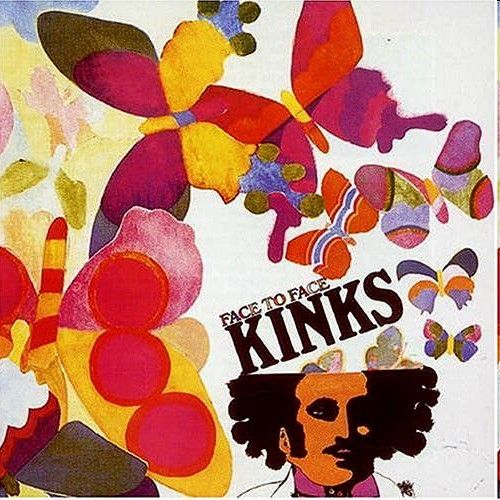
Three:
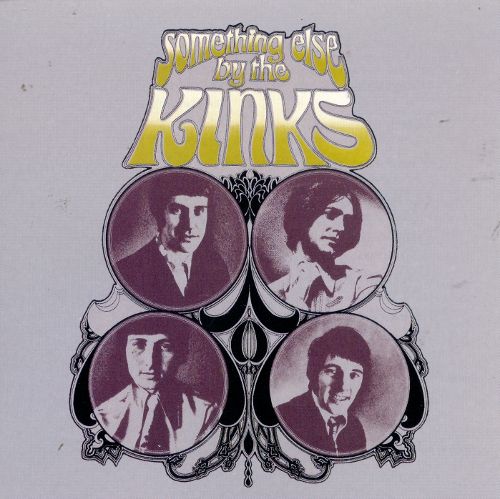
Four:
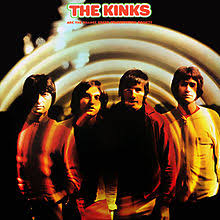
That picture is horrible. I don’t even think that it is very similar to the vinyl copy I own and treasure. You can’t tell by looking that it is called “The Kinks are the Village Green Preservation Society.”
Had the audacity to include the title song lyric “God save little shops, china cups, and virginity” during the “Summer of Love” was a complete flop, and seemed irrelevant in 1968 given the chaos of the world at the time, but also had the stanza:
Preserving the old ways from being abused
Protecting the new ways, for me and for you
What more can we do?
Which was both a conservative and a progressive statement at the same time and a better message than most of the albums that appeared to be so relevant at the time.
Currently the biggest seller in their catalog and indeed go ask Jeff Bezos what the fuck happened to your favorite little shops.
The most meaningful album to me in my life.
Five:
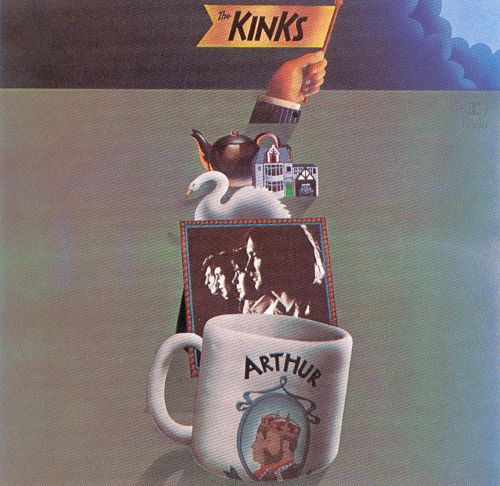
The best told, most accurately detailed, concept album of all time. Came shortly after “Tommy,” and makes “Tommy” seem scattered, overlong, and unfocused by comparison. Whether it was finished before “Tommy ” I don’t know. What I do know is that even Pete Townshend at his most arrogant will admit that everything he did followed what Ray did by about six months, mostly replacing Ray’s legion of attitudinal tones with sheer aggression.
This was exactly true until at least 1985 when Ray made an album and a film called “Return to Waterloo,” and then Townshend followed similarly with “White City.”
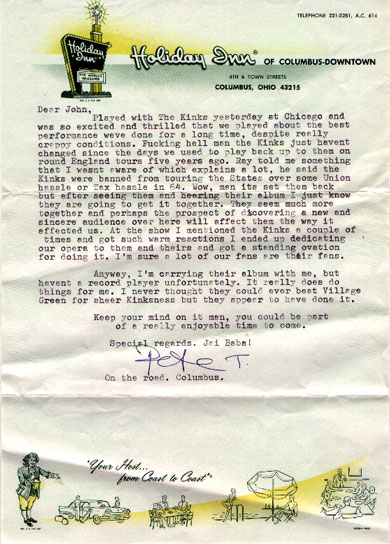
Now that is touching and heartfelt. It is also very funny because legend has it that the Who were banned from all Holiday Inns.
From the song “Shangri-La,” as good a song as has ever been written about a common man and one with disgust, condemnation, anger, belittlement, but nothing but love for its subject:
All the houses on the street have got a name
‘Cause all the houses in the street they look the same
Now that’s important to me, because although the houses on the street I grew up on did not have names, aside from their color they indeed all were exactly the same and I never realized it until I first heard this song perhaps four years after I had moved away from that street.
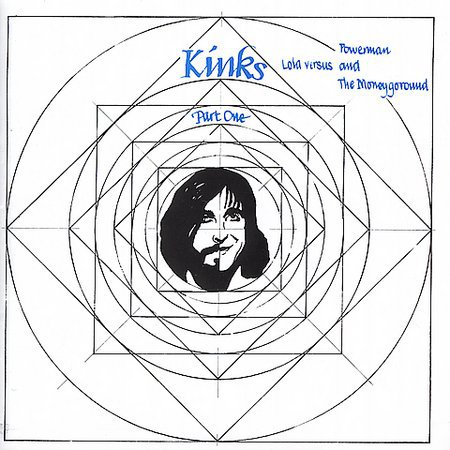
“I keep turning out great art and you keep asking for hits. Fine here is a hit, but on the album it comes with I will proclaim it a hit before it is a hit, and then I will completely destroy you and your entire industry for the sheer greed and corruption that it exemplifies, while maintaining my sympathies for the working man. I will also show you how insane this world has made me and threaten to fly off on a jet and never return. Meanwhile, the song I wrote for you as a hit will still be pure art!”
There was no Part Two and one was never needed.
I discuss this entire era and indeed his entire career here:
Ray Davies Writing Hits When and Only When He Feels like Doing So
Seven:
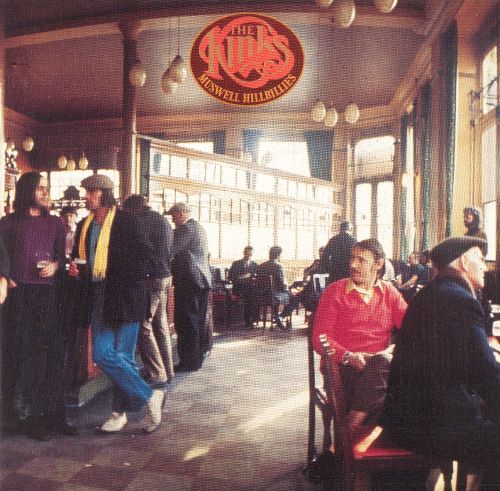
“20th Century Man”
This is the age of machinery,
A mechanical nightmare,
The wonderful world of technology,
Napalm hydrogen bombs biological warfare.
This is the twentieth century,
But too much aggravation
It’s the age of insanity,
What has become of the green pleasant fields of Jerusalem.
Ain’t got no ambition, I’m just disillusioned
I’m a twentieth century man but I don’t want to be here.
My mama said she can’t understand me
She can’t see my motivation
Just give me some security,
I’m a paranoid schizoid product of the twentieth century.
You keep all your smart modern writers
Give me William Shakespeare
You keep all your smart modern painters
I’ll take Rembrandt, Titian, Da Vinci and Gainsborough.
Girl we gotta get out of here
We gotta find a solution
I’m a twentieth century man but I don’t want to die here.
I was born in a welfare state
Ruled by bureaucracy
Controlled by civil servants
And people dressed in grey
Got no privacy got no liberty
’cause the twentieth century people
Took it all away from me.
Don’t want to get myself shot down
By some trigger happy policeman,
Gotta keep a hold on my sanity
I’m a twentieth century man but I don’t want to die here.
My mama says she can’t understand me
She can’t see my motivation
Ain’t got no security,
I’m a twentieth century man but I don’t want to be here.
This is the twentieth century
But too much aggravation
This is the edge of insanity
I’m a twentieth century man but I don’t want to be here
The last song of the album is called “Muswell Hllbilly” and starts off with this:
Well I said goodbye to Rosie Rooke this morning
I’m gonna miss her bloodshot alcoholic eyes
She wore her Sunday hat so she’d impress me
I’m gonna carry her memory ’til the day I die
A friend told me that he heard Bruce Springsteen say that he could match “Born to Run,” if he wanted to but the taxation of the effort it would take would kill him. It nearly killed Ray. So perhaps that was him truly saying goodbye. He would write many more great songs, but two through seven was his Zenith.
Six albums in five years and a streak unmatched for near perfection by anyone ever. Rob Reiner directed six amazing movies in eight years, which is the closest comparison I can imagine. Films are huge collaborative undertakings so Reiner had a lot of money and help, yet those films still pale to me compared to what the Kinks did from 1966-1971, and there are a ton of great songs that were left off of those albums too.
Elvis Presley:
Eight:
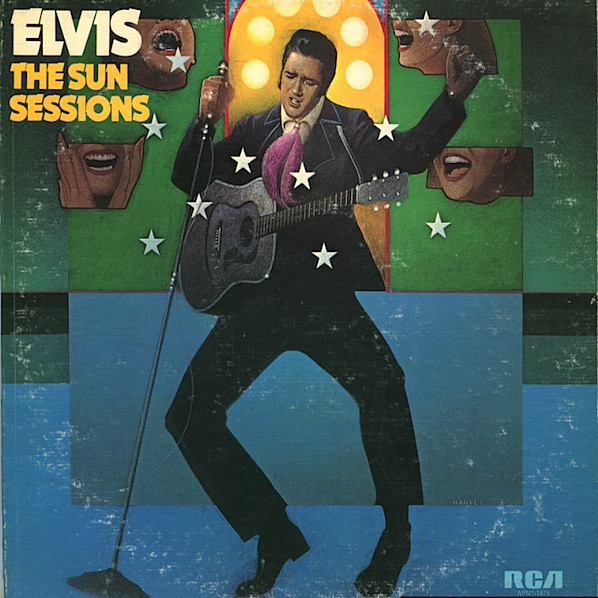
Elvis Presley, Scottie Moore, and Bill Black. Sam Phillips producing and egging them on.
16 songs only three have drums.
Elvis plays rhythm guitar on all of them and ferociously
.
He plays piano, his best instrument, on “Trying to Get to You”
Without a doubt creates rockabilly here and it was never topped.
Creates Rock and Roll too. Ignorant people will yell cultural “appropriation,” which criminally occurred a lot, but not here not even for a second.
Elvis Presley grew up poorer than any significant musician white or black ever. He also knew and loved nearly every single blues, country, gospel (white and black), standard, and pop song ever recorded. He watched everyone of any color he could every moment he could, which often meant being the only white kid in a black church, the only white kid sneaking into a black nightclub, hanging out at hillbilly bars or picnics, or where ever any music was being played whether he could afford to get in there legitimately or not.
Chuck Berry mixed country with rhythm and blues first, but not as audaciously as this. This sounded like something from another planet. Indeed even a hack comedian knew.
Rock and roll was fathered by black blues and rhythm and blues. It’s mother was white as can be country music (don’t forget that Charlie Parker loved country music).
This was called miscegenation back then and it was frowned upon. Violently frowned upon!
Then again some ignoramus will point out that Elvis did not write a single one of these songs, but does that really matter?
Let’s do some before and after:
B:
Now do those two songs sound like they come from the same galaxy?
Do you have any idea how revered version A was and what a capital crime it was to those who saw it as gospel to never be fucked with ever?
Do you know what balls it took turn A to B?
Only one man alive had the temerity to do that. His name was Elvis Presley and he was 19!
Upon hearing that Sam Phillips reportedly said “Boy, that’s fine, that’s fine. That’s a pop song now!”
Now the world owes Sam Phillips a lot, but with Elvis comes ignorance and here is perhaps the most ignorant thing I’ve ever seen written about Elvis, which I sadly found by accident looking for the exact wording of the above quote.
The Man Who Invented Elvis: Sam Phillips (1923-2003)
Here’s an especially ignorant paragraph from it.
“Go back to that summer’s day in 1953, when Phillips first heard that voice. He wanted Elvis, but he didn’t want him singing “My Happiness.” Nobody needed a one-man Ink Spots, or a hillbilly Eddie Fisher. “I always said,” Phillips told everybody, “that if I could find a white boy who could sing like a black man I’d make a million dollars.” So he steered Mister Eclectic away from everything but one particular corner, and Elvis, as always, said, “Yes, sir.” Imagine if Phillips had said, Sure, kid, how about a couple more Ink Spots covers, and that “Stranger in Paradise” from “Kismet’s” pretty nice, and you’ve got the pipes for it, and how about we round things out with a little Eddie Fisher. There would have been no rock-and-roll Elvis, and nothing for RCA to buy up. It would never have occurred either to them or him.”
Let’s analyze that paragraph.
Elvis did record “My Happiness” on July 18, 1953. He paid $3.25 to do it, which must have been a fortune to him. Sam Phillips was not there. Marion Keisker was there and she helped him record his record, which was how Sam Phillips made money on the side when he was not recording black artists.
Sam Phillips did in fact record “Rocket 88.”
Supposedly, Philips did say this in 1952, “If I could find a white man who sings with the Negro feel, I’ll make a million dollars.”
But always look at the source when you are hearing about history, and always remember that nearly every memoir or interview sets history on that subjects terms.
So who says that Sam said that? Mostly, Sam.
Marion Keisker was taken by Elvis Presley for some reason. Probably, not by that recording, which he said was intended as a gift for his mother, but was really an attempt to impress Sam Phillips. There’s really nothing special on that recording. Maybe, Keisker was taken by the boy’s good looks, his unique clothing (although he may have been wearing his Crown Electric uniform), or his hair and sideburns.
There was some talk that day.
She said, “What kind of singer are you?”
He said, “I sing all kinds.”
She said,”Who do you sound like?”
He said,”I don’t sound like nobody.”
Remember that quote, because it is perhaps the most epic and true thing ever said by a singer.
“I don’t sound like nobody.”
Elvis was not much for public statements, but at some point he also said this:
“People ask me where I got my singing style. I didn’t copy my style from anybody . . . . Country music was always an influence on my kind of music.”
And this:
“When I was a child I was a dreamer. I read comic books, and I was the hero of the comic book. I saw movies, and I was the hero in the movie. So every dream I have ever dreamed has come true a thousand times.”
This is who he always wanted to be:
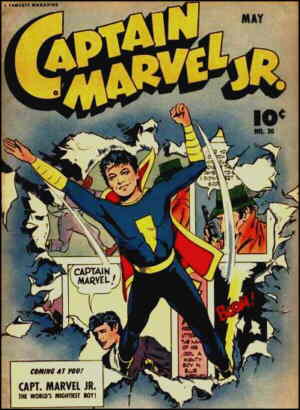
So yeah, Elvis was a shy kid, but he knew what he wanted to be. He wanted to be a superhero, and well before he walked into Sam Phillips’ business.
Now that eventually led to this, which you can trifle with if you want to:
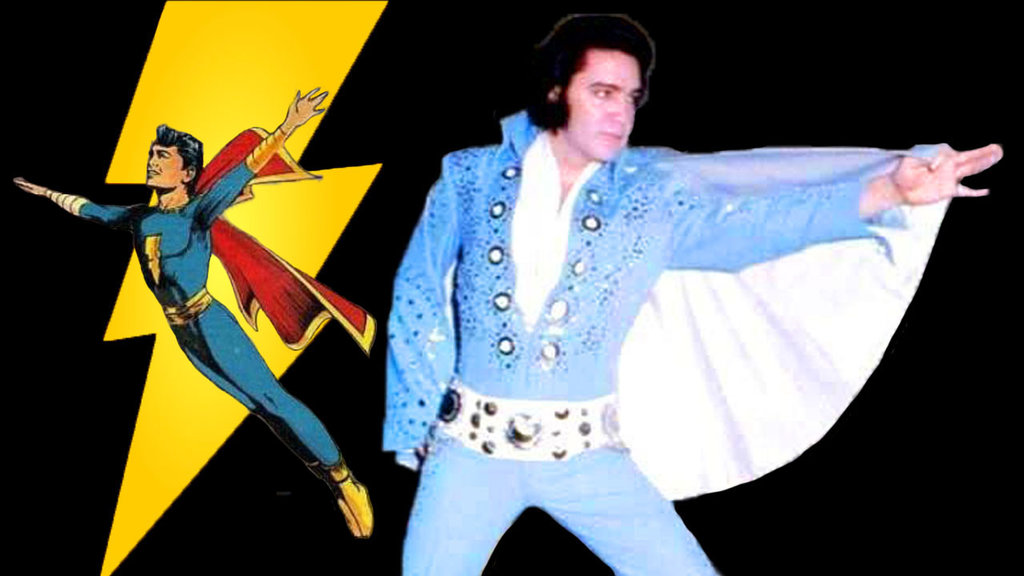
But that was 20 years or so later, and only showed he never forgot who he always wanted to be. By that time he WAS a superhero performing for very large crowds and he dressed the part.
While he was at Sun he did dye his hair black like Captain Marvel Jr. and he dressed like this. In fact, he had been dressing like that since high school. His clothes and his hair/sideburns brought him so much derision there that the people that kept him safe like “Red” West were kept by his side until the day he died. Shy, yes. Fearless, definitely.
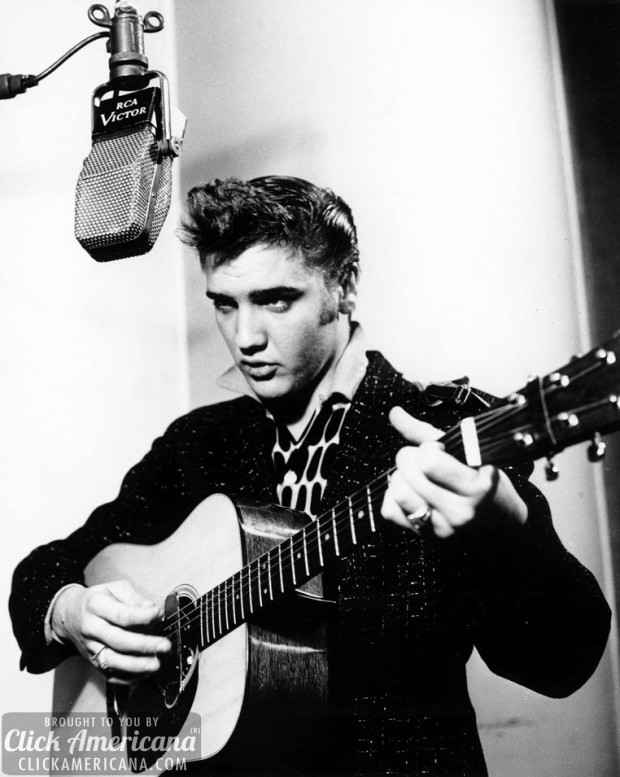
In fact, I defy you to show me a single photo of Elvis pre-Army, where his clothing was anything less than the pinnacle of cool.
Where did a young Elvis first shop? Lansky Brothers.
Bernard Lansky first noticed a young Elvis Presley checking out the store’s window displays in the spring of 1952. He invited Elvis to come in and shop, but the young king declined, saying he didn’t have any money. As the story goes, Elvis told him, “When I get rich, I’ll buy you out,” and Bernard replied, “Do me a favor: Don’t buy me out, just buy from me.”
So indeed Marion Keisker kept reminding Sam Phillips about the odd kid who sounded like nobody. He did say as he was criticized for in the above idiotic article that Dean Martin was his favorite singer, but he loved more singers than you and your friends combined have heard, and again he never said that he wanted to sound like Dean Martin he said he wanted to sound like himself.
In the meantime, if Sam was searching unsuccessfully for a white man with a negro feel there is very little evidence of it. Where are the recordings of the failures?
So yes, at some point Sam did hook Elvis up with Scotty and Bill and told them to see if they could put some stuff together and on July 5, 1954, Sam actually had them in the studio.
So yes, when Sam asked Elvis to do something he did say “Yes, sir,” and comply. Not because he was a rube with no point of view, but because he was as Ed Sullivan would one day say, “a real decent, fine boy,” one who had been raised to be polite and respect his elders.
But Sam Phillips did not push Elvis to sing black. He likely had no idea that Elvis knew more about black music and indeed white music than him. In fact Sam sat there making Elvis sing dreck for hours with frustrating results.
It was only when a disgusted Sam, and the only person he should have been disgusted with was himself, told Elvis to take a break, at which Elvis decided to have some fun and did so the way he always did so. He said to Scotty and Bill do you know this Big Boy Crudup song. He started to play that blues song, in his own style which was as much country as blues, and Scotty Moore was capable of joining in and keeping up, at which Sam Philips overheard and said something to the effect of “What the fuck is that” and at that point the world indeed turned from black and white to color.
And indeed this happened a song with “mama” in the title by perhaps the biggest “mama’s boy of all time.”
And there was thunder and lighting and the world was never again the same, and this was said and it was true.
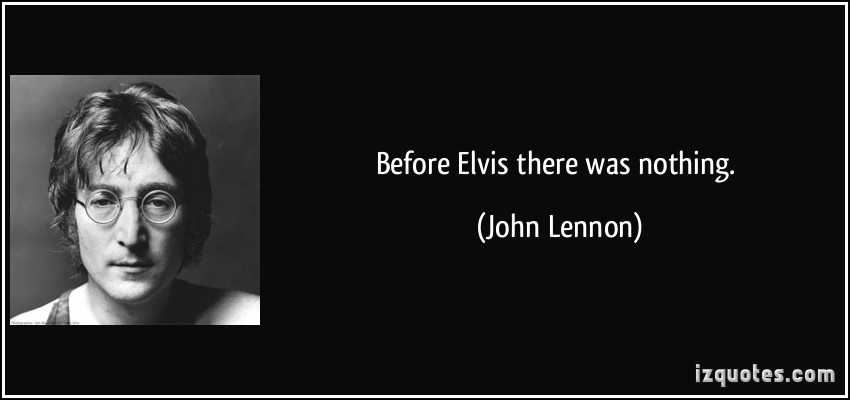
But indeed the boy who was told by Tom Parker, the man who would make him a star while at every point sabotaging him as an artist, “Son, right now you’ve got a million dollars’ worth of talent a year from now, you’ll have a million dollars.”
Same figure from both men and both came in much lower than the truth.
Sam Philips did in no way have the distribution capabilities to handle a star of that magnitude and knew it.
He sold Elvis and those 16 songs to RCA for $35,000. He will claim he had Carl Perkins as a hedge, and he will claim that Carl Perkins were it not for a car accident would have been bigger than Elvis, but Carl Perkins was not Elvis and would never be Elvis. That’s no knock on Carl Perkins, in fact via George Harrison indeed Perkins had more influence on the Beatles music than Elvis did. In fact the Beatles would record and release three Carl Perkins songs and none by Elvis Presley.
So yeah, $35,000, not a million, but that was seed money and there was a ton of talent around Sam at the time. Not just Carl, but Jerry Lee, Johnny, and Roy.
In 1969 Sam Phillips sold Sun and he made more than a million dollars doing it.
Much has been written about these sessions much good, much more drivel. Everyone, who writes will say that these recording are essential. They will say that everything that has every been done since in somewhere in those sessions and that is for the most part true.
Perhaps the best thing Lester Bangs spit out from his typewriter was upon Elvis’ death in 1977. “We will continue to fragment in this manner, because solipsism holds all the cards at present; it is a king whose domain engulfs even Elvis’s. But I can guarantee you one thing: we will never again agree on anything as we agreed on Elvis.”
So yeah all music writers agree on the Sun Sessions, but how many actually listen to these songs. I know that I do.
My favorite thing about these recordings in that when Elvis, Scotty, and Bill went on tour to show them off many a promoter said “I was told that I was getting the whole band on the records” only to be told accurately that the whole band on those records was indeed standing in front of them.
Nine:
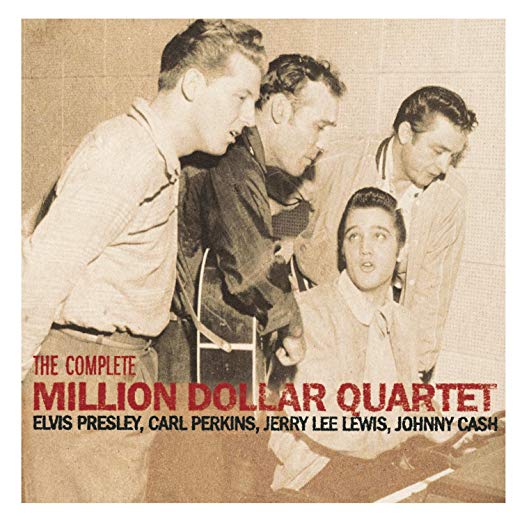
The most misunderstood and easily the most impossible to properly purchase album on this list. If you do try to find this one released in 2006, the 50th anniversary of its somewhat accidental recording, and make sure it has 47 and only 47 songs on it.
December 4, 1956, Elvis and a girlfriend stop by Sun Records to say hello to some friends.
Elvis is at this point a huge star. Elvis appeared on “The Ed Sullivan Show” on September 9th of that year. Ed was not there he was in the hospital recovering from a car accident (So much 50’s rock and roll trivia involve car and train accidents, which is appropriate because in sound and subject matter R&B was trains, R&R was cars and would eventually morph into airplanes and jets. So much of the history of 20th century music is about wanting to go somewhere else and the ones that did indeed did so through their music.). 60 million people watched, 82.6% of the people watching TV that night. Ed should have been overjoyed. Ed instead was upset and scared and had every reason to be.
Elvis had released an incredible two sided single “Don’t be Cruel/Hound Dog” that year. “Don’t Be Cruel” had hit number one on the country, rhythm and blues and pop charts, which is what likely happens when 60 million people see you sing something on TV, although it hit number 1 on all of those charts before he sang it on TV that night.
When Elvis stopped by Sun that day Carl Perkins was recording recording what would eventually become “Matchbox.” A little known Jerry Lee Lewis was there to add his considerable piano skills. Johnny Cash, who had had a couple country hits, was there loitering around for some reason either to watch Perkins or maybe just to get away from the hassles of his home life.
Sam Phillips had pretty much made all the money he would make from Elvis by that time, but he did have promotional skills and he did understand the concept of synergy, whether that term had been used it its present context by then or not.
Mostly, he wanted this photograph, which appeared the next day in the Memphis Press-Scimitar under the headline “Million Dollar Quartet.”
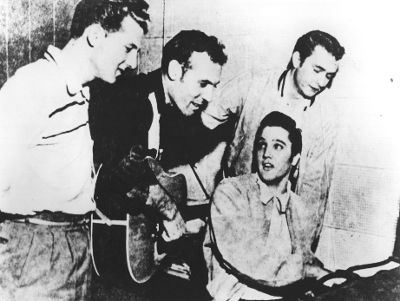
That catchy headline led to numerous myths and stories and eventually a Broadway show that is probably very entertaining, despite having no resemblance to reality.
That’s the nature of things. I don’t recommend it, but if you want to watch the movie “CBGB” and see all the people who played their performing their very famous “hit” songs flawlessly, which in no way ever happened there.
Luckily on that day, Elvis was more interested in hanging out, sitting at the piano, and discussing his musical passions than he was in renting out an entire amusement park for him and his girlfriend.
Fortunately, the engineer Jack Clement, was savvy enough to turn on his recording equipment.
Those tapes were then not sent to the Library of Congress or some other appropriate place. They probably were not even treated with the somewhat disdainful respect that the Ark of the Covenant was.
Now that is a cinematic homage to “Citizen Kane.”
In the case of the above recordings, at least the sled was not incinerated.
Once Elvis sat down at the piano. Johnny Cash may or may not have left. In his memoir he said he was there the whole time, but we’ve already discussed the accuracy of memoirs. If you want to scour the recordings for evidence of his presence good luck. Even if you are a careful, studious listener you will not be able to tell if he sang anything that day or not. People have scoured those tapes and they are likely somewhere wasting their time arguing about it in one of their mom’s basements, which I’m actually not saying is a waste of time.
Carl Perkins played and sang along. Jerry Lee Lewis sang, but for most of the time was clearly going insane that he was not the one at the piano.
These recordings have been released in numerous shitty fragments, in numerous shitty packages, over and over and over again. So be careful that you wind up with exactly what I told you to wind up with above.
Then don’t expect to find something of musical brilliance that will jump out at you. None of these 40 tracks were ever played on a commercial radio show. The Elvis Channel on Sirius probably does not play much from them, although they may play them in their entirety from time to time, which is the only legitimate way to listen to them.
It is exactly what The Rock and Roll Hall of Fame jam sessions were before they were filmed and televised and exactly why those televised events are as awful as they are.
90% of it is Elvis sitting at the piano playing off the top of his head whatever he feels like playing for as long as he feels like playing it. It is 100% undeniable evidence that every idiotic thing that has been said about the man and his music are untrue.
Jerry Lee did get to play at some point and those are perhaps the only cuts that actually are complete and end. Elvis may or may not have been there when they were recorded.
There are 14 tracks that are less than a minute. One is five seconds long. Amazon will charge you $1.29 to download all of them, if you are silly enough to do that, and hey if you are silly enough to spend $1.29 on even an essential 5 seconds when you can buy the whole thing for $14.99 then you deserve to; have too much money; and should send me some of it on PayPal. The more you send, the longer I will write a thank you back about how genius you are and how much you appreciate good music good (just an alternate suggestion, but pay the $14.99).
There is a lot of talking. All of it is joyous and there is a lot of laughter.
There are a ton of gospel songs that you have never heard, most songs that few people other than Elvis had ever heard.
It starts out with four clunky instrumentals, one of a “song” that can’t be identified. Two are Christmas songs, one the most profitable song ever written by a Jewish composer the other “Jingle Bells.”
The fifth song Elvis sort of sings “Reconsider Baby.”
After that had the owner of the seediest nightclub in town given his appraisal, he would tell Elvis and Carl that neither were cut out to be in music more harshly than Simon Cowell ever did on “American Idol” and indeed again Jerry Lee is silently watching saying “why the hell am I not the center of attention!”
But then this happened.
The Elvis is raving about is indeed Jackie Wilson before anyone else knew who Jackie Wilson was!
Elvis: I heard this guy in Las Vegas. Billy Ward and his Dominoes. There’s a guy out there who’s doin’ a take-off of me; “Don’t Be Cruel.” He tried so hard, till he got much better, boy; much better than that record of mine
He could have called it something derogatory, but he called it a “takeoff” not a “theft” and it is described accurately here:
Rebecca Explains from “Jackie Wilson Lovers”
“Note that Elvis says that the singer is doing a ‘takeoff’ of him. I hardly ever hear that term anymore, but it was common in the Fifties. Rather than being an impersonation, a ‘takeoff’ indicated that an artist approached something by adopting and adapting someone else’s performance: starting with an exaggeration, perhaps, of some features of the original, then proceeding to improve on the original, making the performance unique.”
So listen to Elvis compare what he calls the “Yankee don’t ta” to his southern “doan a” and hear him marvel at the way Jackie pronounces it “telee-phone,” which the other southern guys dig too.
Elvis could have taken that six minutes to brag about his historic hit song, instead he spends it talking about how he dug Jackie Wilson so much he went to see him four nights in a row.
Elvis at the time was making his first appearance in Las Vegas, and now Elvis is Las Vegas, but then he flopped in front of the New Frontier Hotel’s “middle aged” audience.
This was the Bill Willard of the Las Vegas Sun’s opinion of his short run.
“Elvis Presley, arriving here on the wave of tremendous publicity, fails to hit the promised mark in a desert isle surfeited with rock and rollers who play in shifts atop every cocktail lounge on the Strip. The brash, loud braying of his rhythm and blues catalogue (and mind you, they are big hits everywhere it seems), which albeit rocketed him to the big time, is overbearing to a captive audience. In a lounge, one can up and go—fast. But in a dining room the table-sitter must stay, look, and listen the thing out. Which is perhaps why Presley received applause on his opening show edged with polite inference only. For the teenagers, the long, tall Memphis lad is a whiz; for the average Vegas spender or show-goer, a bore. His musical sound with a combo of three is uncouth, matching to a great extent the lyric content of his nonsensical songs.”
Elvis went from closing the show to opening it for Shecky Green.
Sam Cooke mostly played what was called “Chitlin Circuit,” but he dreamed of playing the Copa and did. Sam Cooke’s performances at the Copa and there is a live album were very different then his “Chitlin Circuit” performances, which have also been documented.
When Elvis flopped that first night he never once considered adjusting. When you saw Elvis, at least at that time, you saw Elvis.
Now he could have felt sorry for himself, with his fame and looks there were plenty of young, pretty girls available for commiseration. He could have taken advantage of what Vegas probably had plenty to offer, instead he met, goofed around, and compared clothing with Liberace, and went to see an unknown Jackie Wilson four nights in a row!
Who knows who else Elvis could have or did see in the two frustrating weeks he spent in Las Vegas. Frank Sinatra? His “favorite singer” Dean Martin? Elvis likely knew of Billy Ward and his Domino’s from their hit “60 Minute Man” and other songs that were sung by their previous lead singer Clyde McPhatter, who left to form the Drifters.
Wherever they were playing, Elvis was there and unaware that their new singer was doing a medley of his songs. Whoever else was playing in Vegas at the time, Elvis found the most talented guy there, and talked non-stop about him for years.
Elvis and Jackie Wilson became very good friends and whenever Jackie Wilson’s career was flagging Elvis was there to help him out.
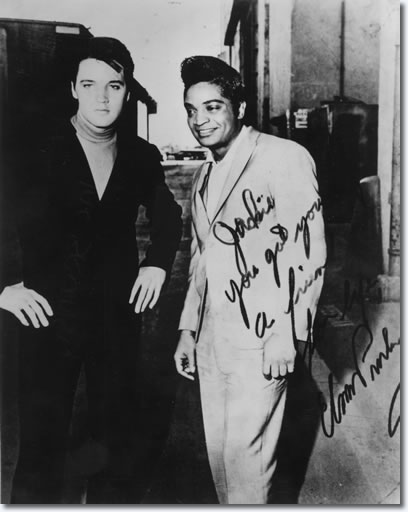
If you can’t read the inscription, it says “Jackie, you got yourself a friend for life.”
So in this case the guy initially being influenced was in fact the black guy, who then influenced the white guy, and then they went back and forth influencing each other for years.
Jackie Wilson’s first solo single “Reet Petite” came out in 1957 and was written by a “little known” songwriter named Berry Gordy. It sounds very much like an Elvis Presley song. Gordy, had been for a time among a group of boxers being trained by a guy who would become the legendary Eddie Futch. All of those kids became champions except Berry Gordy, but Gordy continued to write songs for Wilson and used that money to found Motown.
As to who took what from whom (does it really matter?) this is what Jackie had to say about it.
“I took as much from Elvis as he took from me … A lot of people have accused Elvis of stealing the black man’s music, when in fact, almost every black solo entertainer copied from Elvis.”
Those six minutes of the “Million Dollar Quartet” album soon led to this, which shows how much love Elvis had in him and how funny he could be, and how it wasn’t about him, it was truly about the JOY of the music. So indeed listen to how he sang “telephone” watch him smile into the camera (they couldn’t cut that off) and give a nod to the only person he really wanted to notice it.
After a long set of gospel numbers, there is more hillbilly appreciation for black artists.
Indeed in five seconds you can hear that Jerry Lee Lewis knows and loves all the words to Chuck Berry’s “Too Much Monkey Business,” which was potentially the first rap song and definitely had a whole lot to do with Bob Dylan’s “Subterranean Homesick Blues” existing. There is still enough time in those five seconds left to hear Carl Perkins agree out loud that he likes it too more than once.
They then spend many minutes sharing their love for Chuck’s “Brown Eyed Handsome Man” and take turn singing their favorite parts. They sing it like it was a country song, because indeed Chuck Berry mixed country into the Louis Jordan R&B he potentially stole too. Both Lewis and Perkins would eventually record it.
They all seem to love this stanza:
Milo Venus was a beautiful lass
She had the world in the palm of her hand
But she lost both her arms in a wrestling match
To get brown eyed handsome man
They do however pronounce it “rasseling,” and they very likely know that the real title of Chuck’s song referred to his skin color and that Milo Venus was in all likelihood white.
Elvis can’t remember what the exact count was when the brown eyed handsome man hit his home run at the end of the song, but you can bet your net worth that he understood the first line “Arrested on charges of unemployment,” because own his father was also basically arrested for something very close to that.
Dick Clark very famously insisted that all the artists on American Bandstand lip sync instead of perform live, which led to the loss of what would have been a ton of essential performances. Dick Clark would not have made it though the instrumental version of “Jingle Bells” here but everything that follows it put you right into Elvis, Jerry Lee and Carl’s minds (and mindsets) and that is truly essential.
Ten:
The RCA years which equal a lot more ignorance.
In 1977, a guy named Mark Perry made his biggest contribution to rock history when he wrote that “Punk died the day the Clash signed to CBS.
Many people wrote similarly about Elvis after leaving Sun for RCA.
Here is what Elvis would have said about it.
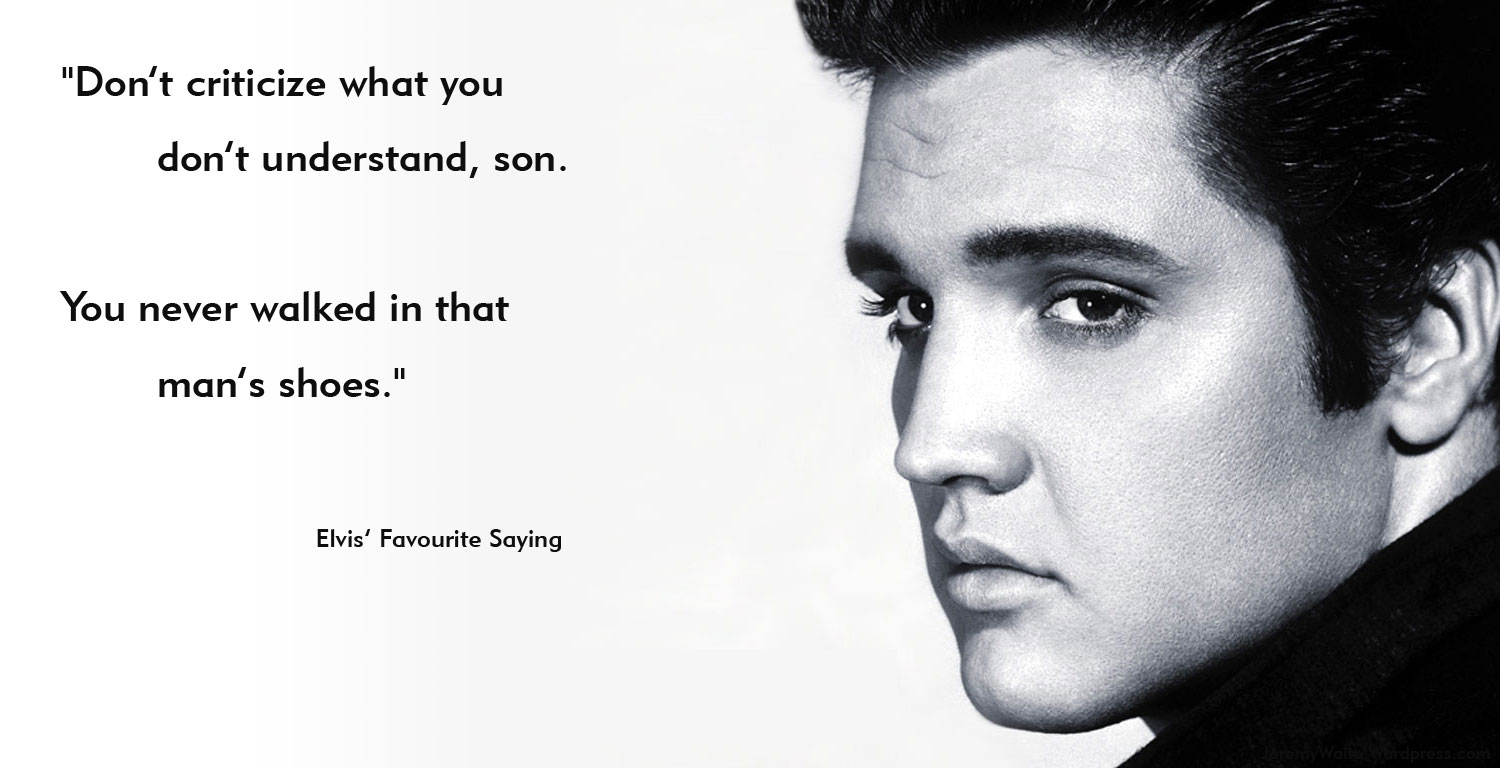
Hilariously, this is what I said about it in 2005 or so:
Before Colonel Tom Parker castrated him, Elvis was the pure definition of a bad motherfucker. “Hi, how are you doing? Tonight I’ll be singing music the world hates dressed like the first white pimp. Oh and by the way, I’ll be shaking like I’m being electrocuted right after hopping on to your daughter! Thank you. Thank you very much.” With Elvis, it was even money on whether he’d be a star or hanging from a tree by the time he was 21.
Let’s hear from the Gospel of Rolling Stone Magazine, “Elvis Presley’s greatest work came during his time with Sam Phillips and during his late 60’s comeback.” Rubbish. I hate those guys. The coolest man who ever lived was the coolest man who ever lived when he recorded for RCA until he got sent a ticket by Uncle Sam over to Germany. If I have to hear one more guy ejaculate over “Mystery Train” and discount what followed I’m going on a shooting rampage. Don’t be ashamed to worship “I Want You, I Need You, I Love You” or any of his other 50’s turbo fueled RCA product. Has anyone ever been that all over the map and this powerful all at the same time? I can see him thinking to himself “nice lyrics but it could use some ums, uhs, and yeahs.” Listen to that boy! He thought he could do anything, and for a while he could.
So in actuality, my real ten slot is “The King Of Rock ‘N’ Roll: The Complete 50’s Masters.”
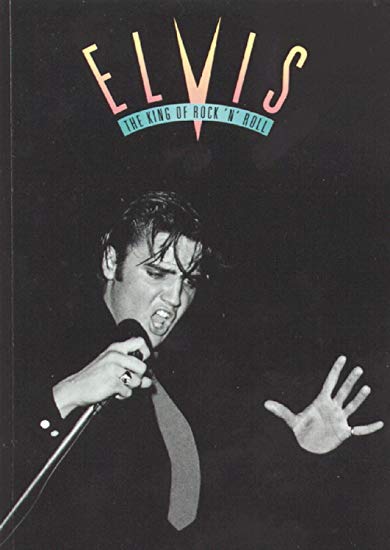
But that’s a five CD box set. If you are rich and want a 100 Essential Box Set list, pay me a bit and I will write you one, but that is kind of cheating. This box set is everything Elvis recorded in the ’50s chronologically and includes all of the “The Sun Sessions” album as well as songs recorded at Sun not on that album and indeed that first acetate he paid to record there “My Happiness.”
It spans every genre of music ever in ways that were completely incomprehensible for people to understand at the time. If I had to choose between that box set and the rest of this list, I would immediately grab that box set and clutch it to my chest like it were a parachute after I’d just been tossed out of a B2 bomber over Russia during the cold war, and with it I would perhaps end the cold war.
When Elvis signed with RCA, he was 20, and RCA had absolutely no idea what to do with him other than to distribute his Sun material. They didn’t even know how to reproduce the slap back echo that Sam Phillips did create on those songs. Chet Atkins was around, but added very little of note. Steve Sholes was nominally the producer of all most of Elvis’ early RCA recordings. Sholes had a lot of country music credibility and RCA had a lot of great country artists on their label. RCA knew nothing about R&B and even loss about rock and roll.
Who made every decision about what Elvis recorded and how it was recorded? Elvis Presley. He was in charge of everything. He picked the songs, he decided how they would be arranged, he decided how they would be sung, he decided what was and wasn’t a mistake (In a lot of cases what people would call a mistake, Elvis would correctly tell them was the key to the whole song. In some cases these mistakes were accidental, in some cases they were done on purpose, but Elvis’ ears decided what would or would not stay), he decided how many takes there would be and which take would be used. In the studio at RCA, people did what they were told no matter how talented they were. The final say was always Elvis’ and yes he probably still did it politely and called his elders “Sir.”
So yeah, he never wrote a song in his life or even tried to officially, but in perhaps only this case that hardly mattered.
Maybe the worst thing on it is Elvis’ mature version of “Old Shep,” which which was written in 1933, and is pretty much exactly “Old Yeller,” which came out in 1957 a year after Elvis recorded it. The only difference is that Elvis can not bring himself to shoot Shep, Shep does not have rabies, and Shep is considerate enough to put his head down on Elvis’ knee, show him how much he loves him and die peacefully on his own. So yeah, it is maudlin, but sometimes a good cry is cathartic, and as Bill Murray said in Stripes, “Who saw ‘Old Yeller?’ Who cried when ‘Old Yeller’ got shot at the end? [raises his hand] Nobody cried when Old Yeller got shot? I’m sure. [hands are reluctantly raised] I cried my eyes out!”
“Old Shep” is also a very historically significant song in Elvis’ life.
On October 3, 1945, Elvis Presley sang “Old Shep” at age ten for his first public performance, a singing contest at the Mississippi-Alabama Fair and Dairy Show. Dressed as a cowboy, he stood on a chair to reach the microphone. He came in fifth place, winning $5 and a free ticket to the fair rides. At sixteen years of age, in 1951, he again performed it for a talent show at L. C. Humes High School, where he was a student, winning an encore for his performance.
My mom watches every musical talent contest currently on television, which frustrates me because I try to show her real music and she isn’t that interested. So I tell her that she really doesn’t like music she likes game shows, which is true. I’m not really happy with all the music game shows on television now., but I do know two things, Elvis appeared in every talent show he could find and John Lennon would have gone on “American Idol” if he had the chance when he was an unknown.
My real number ten then will be a compilation. This by nature of its awesome title and its gold lame suit has the best cover.
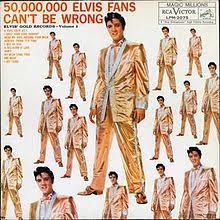
But this is what I grew up with since 1977 so it is #10
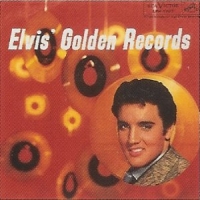
Nine number 1 hits, one number 2 hit, and “Treat Me Nice” was a B side, that if released as an A side would have been a number 1.
I’ll only talk about one song on this album, which will seem like belaboring the point, but by now hopefully you understand that no point to me is more worth belaboring.
I took a musician friend to a Jeff Beck show was forced to hear about poor “Big Mama” Thornton for the 18,757th time.
I wasn’t in the mood to fight and the show was about to start so I just said, “You do realize that song was written by two east coast white Jewish boys with zero blues credibility?” He didn’t believe me and the lights came down, but it is true. In fact one of the two bragged that it only took 12 minutes to write. We aren’t talkling about the Sistine Chapel here.
So that’s a blues song. It sold a lot of copies. If you love it that’s cool. My guess is that people have bitched about some perceived crime against its singer a million times more than people who have actually heard it or own it. So next time you hear someone cry about “Big Mama” Thornton look at their iTunes and see if it’s on there because I’ll bet every person who says it $100 that it isn’t on there, and I’ll even go double or nothing on whether they’ve even actually heard it.
Between its release in 1952 and Elvis’ cover from 1955, it had been covered, responded to, parodied, and fucked with in every imaginable way.
Elvis was essentially like the 1000th guy who covered “Yesterday.” Elvis recording the song did nothing, but help her career, make her money, and giver her perhaps more of a legacy than she ever deserved. That is a blues song, albeit kind of a silly one, with a lot of barely “double” entendres, the vocalists voice is actually fairly distinctive, but she made very little money from it (which had nothing to do with Elvis Presley) and unless you have the lyrics to every Robert Johnson song ever recorded and the lyrics to every variation of his songs, you have no idea what “Big Mama” Thornton did between recording it and hearing Elvis’ version for the first time.
If you know who “Big Mama” Thornton is you only know her because of Elvis Presley. If you are the president of a fan club dedicated to her work, you still first heard of her because of Elvis Presley.
Elvis Presley was indeed a bigger fan of “Big Mama” Thornton’s than any of those people and really her version had almost nothing to do with his.
If Elvis lifted “Hound Dog” from anywhere it was from here:
Now that is exactly what people who rightfully cry about “cultural appropriation” are correct about. It’s been defanged and desexualized, it’s inferior to any real rock and roll, it’s stupid and silly. If you want more examples of this type of behavior research Pat Boone and the Crew Cuts.
The best artist at whiting black music up was Bill Haley, and similarly Bill Haley often cleaned up the sexual imagery of the black music he recorded.
Here are the lyrics to Bill Haley’s “Shake Rattle and Roll” and believe me Bill Haley, before Elvis was exactly the best case scenario.
Get out from that kitchen
And rattle those pots and pans
Get out from that kitchen
And rattle those pots and pans
Well, roll my breakfast
‘Cause I’m a hungry man
I said, shake, rattle, and roll
I said, shake, rattle, and roll
I said, shake, rattle, and roll
I said, shake, rattle, and roll
Well, you’ll never do nothing
To save your doggone soul
Wearing those dresses
Your hair done up so nice
Wearing those dresses
Your hair done up so nice
You look so warm
But your heart is cold as ice
I said, shake, rattle, and roll
I said, shake, rattle, and roll
I said, shake, rattle, and roll
I said, shake, rattle, and roll
Well, you’ll never do nothing
To save your doggone soul
Go! Go! Go! Go! Go!
I’m like a one-eyed cat
Peeping in a sea food store
I’m like a one-eyed cat
Peeping in a sea food store
I can look at you
‘Til you don’t love me no more
I believe you’re doing me wrong
And now I know
I believe you’re doing me wrong
And now I know
The more I work
The faster my money goes
I said, shake, rattle, and roll
I said, shake, rattle, and roll
I said, shake, rattle, and roll
I said, shake, rattle, and roll
Well, you’ll never do nothing
To save your doggone soul
Shake, rattle, and roll
Here are the lyrics to Big Joe Turner’s original.
Get out of that bed, wash your face and hands
Get out of that bed, wash your face and hands
Get in that kitchen, make some noise with the pots and pans
Way you wear those dresses, the sun come shining through
Way you wear those dresses, the sun come shining through
I can’t believe my eyes all that mess belongs to you
I believe to my soul you’re the Devil in nylon hose
I believe to my soul you’re the Devil in nylon hose
Well the harder I work, the faster my money goes
I said shake, rattle and roll, shake, rattle and roll
Shake, rattle and roll, shake, rattle and roll
Well, you won’t do right to save your doggone soul
Yeah, blow Joe!
I’m like a one-eyed cat peepin’ in a seafood store
I’m like a one-eyed cat peepin’ in a seafood store
Well, I can look at you till you ain’t no child no more
Ah, shake, rattle and roll, shake, rattle and roll
Shake, rattle and roll, shake, rattle and roll
Well, you won’t do right to save your doggone soul
I get over the hill and way down underneath
I get over the hill and way down underneath
You make me roll my eyes, even make me grit my teeth
I said shake, rattle and roll, shake, rattle and roll
Shake, rattle and roll, shake, rattle and roll
Well, you won’t do nothin’ to save your doggone soul
There was a lot of cleaning up done by Haley basically he took an X rated film and made it at worst PG-13. Haley’s version still has some of the misogyny in it for better or worse. The most shocking thing about Haley’s version is that he kept the one eyed cat peepin’ in a seafood store line in there somehow. So yeah Haley was before Elvis the best case scenario, if you liked your rock and roll filthy.
Elvis was not a filthy person, but he never changed lyrics.
So go here and see Elvis sing a medley of Turner’s “Shake, Rattle and Roll” and his “Flip, Flop and Fly.” Then watch him sing Ray Charles’ “I Got a Woman.”
See exactly which lyrics he keeps (all of them) and then realize how none of that sounds anything like the originals, but are even perhaps more dangerous and ferocious than the source material.
Elvis Presley on the Dorsey Brother’s Stage Show
Better yet, if you truly want essential, buy or rent “Elvis 56” ASAP!
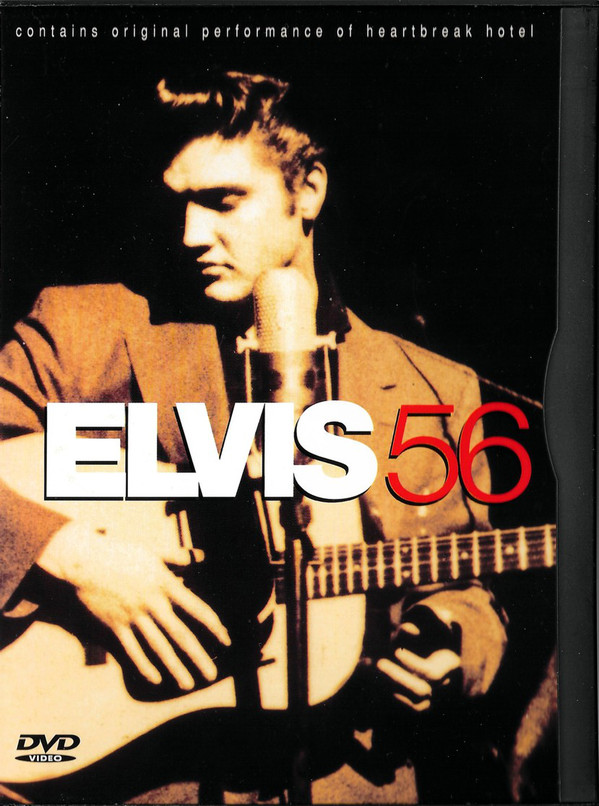
There you will hear the wonderful Southern accent of the equally wonderful Levon Helm take you through the world shaking eruption that was Elvis Presley in 1956. You will see every TV show performance from that year, which were basically all of his TV show performances until the 1968 comeback special.
He will start out on the “Dorsey show” as untamed as a wild bull and end up on the “Sullivan Show,” being filmed only from the waist up.
You will see what a genuinely nice and humble person he was, but you will also see how incredibly fucking dangerous he truly was up until his appearance on “The Milton Berle Show” performing “Hound Dog,” what they did to him after that and how he felt about it and dealt with it.
Chuck Berry was dangerous, Little Richard was dangerous, Jerry Lee Lewis was psychotically dangerous, but they could keep them marginalized.
Elvis Presley was a motherfucking force of nature never seen before or since. They were damn right to be scared shitless!
So what’s up with “Hound Dog” then? The answer is that just like when you see him laugh to Jackie Wilson about what they were doing to him on the “Sullivan Show,” musically when he wanted to he had a great sense of humor. In fact, when you see him perform “Hound Dog” on “Berle,” the performance that woke up white America and made them wet their beds, you can see how funny it all was to Elvis.
So yeah, Elvis saw Freddie Bell and the Bellboys do their lame version of “Hound Dog.” He recognized what an incredibly pathetic joke it was. So he asked permission from them to do his own take off one it, and received it.
Back in the studio. He basically much like Ray Davies did with “Lola” said, “You want cleaned up, desexed, versions of ‘vulgar’ black material? Cool, here it is. It will still kick ass, it will still be dangerous, it will define the pure essence and joy of rock and roll, it will be truly funny as hell, and it will still scare the shit out of you!”
That delivers on that threat and it didn’t hurt “Big Mama” Thornton one bit. In fact, it probably thrilled her as much as it did anyone else who could tell kick ass from lame.
Find me a guitar solo as ferocious as Scotty Moore’s there in a song by a white man before July 13, 1956 and then tell me about “cultural appropriation” and again if you want to cry about that I am on your side in nearly every case, but in one case those are fighting words.
There were of course repercussions for that kind of behavior, which should make you wish like I always have that “Col.” Tom Parker, who was a greedy asshole, was more like Peter Grant, the violent greedy asshole who managed Led Zeppelin.
Remember the words of the song written by Cricket Sonny Curtis in “I Fought the Law.” Everyone sings that song proudly, but in the end almost all of the time just like in that song “the law won.”
At one point Elvis had to sing to a basset hound in a Tuxedo, which he was definitely incensed about, but took in stride publicly.
It took exactly the law to take Elvis and rock and roll died, and the man who coined that term took the fall. The man, who was more guilty of Freed’s made up crime actually rose from the wake and has done more damage to good music than any man if American History. You can see my somewhat hyperbolic explanation of that and his views on “Hound Dog,” which prove my point in “Dick Clark is the Anti-Christ”.
Elvis Presley was drafted on December 10th, 1957.
As for the real cultural appropriators behind “Hound Dog,” Jerry Leiber and Mike Stollar, Stollar at the time the record hit was on the ill fated wreckage of the “Andrea Doria” and was in pretty bad shape when a justifiably excited Jerry Leiber told him about their incredibly good fortune during his Ocean disaster. Stoller’s first response was essentially, “Who is Elvis Presley?”
After Stoller found out, no matter what memoir by them you read, they got themselves on the Elvis money train as quickly as possible and wrote a ton of great songs for him. Elvis was I believe actually the first white artist for whom they wrote.
They wrote a ton of great songs for the Drifters, the Robins (who became the Coasters) and many other great artists. They wrote “Stand By Me” with Ben E. King. They even got themselves their own historically inaccurate hit Broadway Musical.
Eleven:
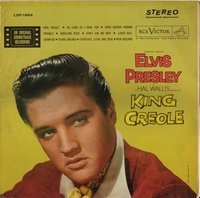
Want to have some more ignorant fun at Elvis’ expense? Talk about his acting career and the soundtracks to his movies.
Never forget these things about Elvis Presley
- He grew up as poor as anyone you’ve ever heard of
- He loved his mother intensely and would do anything to improve her lot in life
- It was their shared dream that he become a huge singing star
- Before he went into the Army during which he lost his mother and had his artistic confidence shaken, because he had no idea what would happen when he got out. He was about as pure an artist as you could find
- He was an incredibly loyal son of a bitch
This was released in 1985 and is still probably the best thing ever written about the life of Elvis Presley and it has very to say about Elvis’s after Gladys Presley died August 14, 1958, but then again it doesn’t really have to either. Elvis was 22.
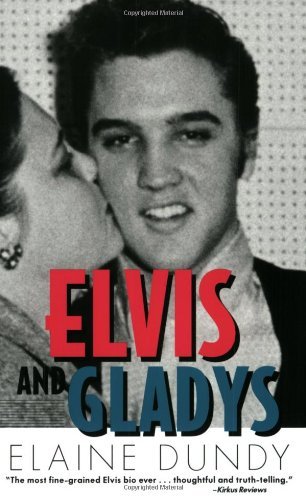
Those five things pretty much explain every artistic mistake that Elvis made in his post-Army life.
He saw the damage that Tom Parker did to him (he wasn’t really a Colonel so let’s dispense with that).
Tom Parker did not care one bit about art of any fashion. Tom Parker in all aspects cared only about making as much money for Tom Parker as humanly possible. If Tom Parker could bilk out an extra penny out of Elvis Presley and get away with it, there was very little he would not do.
Tom Parker promised to make Elvis Presley a millionaire and he did that.
Elvis’ first contract with Parker was signed on November 21, 1955.
Elvis was 20 years old, and that contract had to also be signed by his parents Vernon and Gladys.
That link tells you pretty much how poor and insignificant Elvis’ parents were when he was born during the depression in 1935. These people came from people who were not buried together behind “Graceland.” They came from people who were buried in unmarked graves and forgotten forever.
Vernon forged a check when Elvis was three, for some extremely small amount of money after he felt he’d been taken advantage of in the selling of a hog.
This is the earliest known photograph of the Presley Family from 1938 and this is the story behind it.
“The blank, clean, slightly gray background is probably the concrete wall of the brand-new Lee County jail in Tupelo. Vernon is a prisoner, having been arrested on November 16, 1937, for forging a check.”
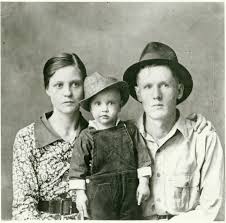
People like this would be insensitively called “white trash.”
Not very much positive has been written about “Southern white trash.” Among people of my upbringing and belief system, there is very little sympathy for “Southern white trash.”
There are no James Balwins or Alex Haleys of “Southern white trash.”
Perhaps the only people I’ve ever seen have sympathy for this group of people, who could not be traced to the Ku Klux Klan in some way, are Woody Guthrie and his self appointed heir Bob Dylan.
Bob Dylan wrote “Only a Pawn in Their Game” in 1963. He sang it at the March on Washington for Jobs and Freedom on Aug. 28, 1963.
That event ended with Martin Luther King’s immortalized “I Have a Dream” speech.
Dylan’s presence there was perhaps the most overtly political and activist thing he had done at that point, and while he would write songs with political connotations for a bit longer and occasionally make some subtle public political statements, that was basically as close to activism and marching as he would ever get and after that there was soon very little written that was overt and no more marching ever, despite the pleas of perhaps an entire generation.
Dylan’s singing of “Only a Pawn in Their Game” that day is easily the most complex thing sung that day, it is probably the more complex then all of the speeches made that day too.
Most people today willfully only remember King’s speech for these words, “I have a dream that one day this nation will rise up and live out the true meaning of its creed: ‘We hold these truths to be self-evident; that all men are created equal.’ …I have a dream that my four little children will one day live in a nation where they will not be judged by the color of their skin but by the content of their character.”
Those words have been used to completely co-opt the radical nature of Martin Luther King.
Ask someone today what they know about Martin Luther King and they will pretty much only know “Great speaker, non-violent, ‘I have a dream …”
King’s speech was more radical than that and angrier than that, and when he died five years later he was even more radical and probably a lot angrier. Reread it, I just did.
People will use those words to tell you that Martin Luther King would be against Affirmative Action today. People will tell you that King’s dream has long been achieved and that they are tired of hearing about how racist they are.
“And as we walk, we must make the pledge that we shall march ahead. We cannot turn back. There are those who are asking the devotees of civil rights, ‘When will you be satisfied?’
“We can never be satisfied as long as the Negro is the victim of the unspeakable horrors of police brutality…
“We cannot be satisfied as long as the Negro’s basic mobility is from a smaller ghetto to a larger one. ”
King’s speech accuses America of writing African Americans a bad check.
“In a sense we’ve come to our nation’s Capital to cash a check. When the architects of our republic wrote the magnificent words of the Constitution and the Declaration of Independence, they were signing a promissory note to which every American was to fall heir.
This note was a promise that all men, yes, black men as well as white men, would be guaranteed the unalienable rights of life, liberty, and the pursuit of happiness.
It is obvious today that America has defaulted on this promissory note insofar as her citizens of color are concerned. Instead of honoring this sacred obligation, America has given the Negro people a bad check; a check which has come back marked “insufficient funds.”
Now that was exactly the biggest crime Vernon Presley committed in his life, for which he spent likely way too much time in jail. In between the most famous passages of that speech that I quoted above this was said where I above put ellipses.
“I have a dream that one day even the state of Mississippi, a state sweltering with the heat of injustice, sweltering with the heat of oppression, will be transformed into an oasis of freedom and justice.”
Where was Elvis Presley sired by Vernon Presley? Tupelo, Mississipi.
King showed appreciation for his white supporters in that speech, but as to “Southern white trash” this was pretty much all he said about them.
“I have a dream that one day down in Alabama, with its vicious racists, with its governor having his lips dripping with the words of interposition and nullification, that one day right down in Alabama little black boys and black girls will be able to join hands with little white boys and white girls as sisters and brothers.”
So on that day King had sympathy for Southern white children, but clearly he had condemned all Southern White adults.
Bob Dylan’s song was way more radical than that, and perhaps a lot of people there would have been happier to have him sing “Blowin’ in the Wind” that day.
There were roughly 250,00 people there that day. I have no idea how many understood what Dylan was singing about. I have no idea how many of those that did agreed with Dylan on the subject. I have no idea how many of those 250,000 would agree with Dylan if they studied the lyrics of “Pawn”for 15 minutes.
I’m guessing that no one who didn’t understand the song before Dylan sang it understood it after, especially with that amplification system and his delivery.
“Medger Evers…people hiding in hoods…lynchings… They lowered Medger down as a king…. right on Bobby thank you for being the voice of our generation!”
Here’s what Dylan had to say about that when some white liberals who had been on the “right side” for years gave him an award for his song.
Those people who gave him that award were pissed and the full speech was much longer and he was drunk. He mentioned Cuba a lot. He didn’t apologize but he did write a cryptic poem that probably made them even angrier.
They gave him that award three months after the March on Washington and perhaps had they understood “Only a Pawn in Their Game,” they may have known what they were in for and not given it to him.
Martin Luther King was not condemning those allies in 1963. How could he? And if he wanted to could he afford to?
But aren’t those people exactly Jessica Tandy in “Driving Miss Daisy,” bragging to Morgan Freeman about paying to see Martin Luther King speak while he waited in her car, while she did so? It’s still easy to sympathize with the Miss Daisy’s of that era. Hell they made a movie sympathizing with her that won best picture at The Academy Awards. Jessica Tandy won best actress for playing her. Morgan Freeman, perhaps the best actor of his generation lost the best actor category to a great actor playing a white guy with a handicap. Which was perhaps Dylan’s point and mine in the article I linked above.
These were my words in 2007, “The men’s category is sort of the same, but they need to take it one step further by playing a drunk, a retard, a psychotic, a cripple, someone dying slowly and painfully – you know the serious roles. Some years the academy is even fortunate enough to give an award to a real cripple or retard and that always goes down really well with the folks at home.”
I still stand behind everything I wrote in that piece, even though I use the word “retard” at least 50 times.
If that word offends you than watch this:
In fact, had you asked me in 2007, I would have proudly told you that my movie rules were “No Southerners, no retards.” Now that was shorthand for “white trash.”
Since then I’ve warmed up to films and television shows about “white trash.” The show “Justified” is pretty much about nothing about “white trash” and is fascinating.
If you want me to use a different term for the second genre I did not like I will, but I still defy you to find a decent fictional movie about them.
Right now I have a lot of anger about the way those considered to be “white trash” are doing to this country, but due to what Dylan sang at the March on Washington to people who held that same contempt, I sort of understand.
Here was a very recent controversial and complicated statement made about that P.A. system Dylan sang into by Dave Chappelle:
“Here comes the kicker, you ready? Here’s the fact that I heard, but haven’t confirmed. I heard that when Martin Luther King stood on the steps of the Lincoln Memorial and said he had a dream, he was speaking into a P.A. system that Bill Cosby paid for. So, you understand what I’m saying? The point is this: He rapes, but he saves. And he saves more than he rapes. But he probably does rape.”
So finally here is my kicker.
Bob Dylan at the March on Washington was singing about his compassion not just for “white trash,” but specifically the cowardly piece of”white trash” who indeed ” took Medgar Evers’ blood” with “a bullet from the back of a bush.” Hell, listen to the whole song, Dylan has compassion for probably 90% of the KKK.
He has nothing but contempt for rich people and politicians that have fueled racial division by running an epic confidence game to stay rich.
It is about distracting poor people’s hatred and violence toward each other so they don’t team up and attack the horrible way America shares its wealth.
It was true when Dylan sang it back then, and it is perhaps even truer today in a country where those same people have been so epically conned by a rich, vindictive, child, whose only real achievements in life were due to his abilities as a con man.
And what was Martin Luther King talking about in 1968? Poverty and Viet Nam a lot more than skin color or ethnicity. In fact, he was spending a lot of time up in the North.
Byron De La Beckwith, shot Medger Evers in the back at 42, people sent him money to defend himself, and it took 30 years to put him away. Vernon Presley, penniless at 22, forged a check for a very small dollar amount and was in jail for six months without a trial, while his wife and three year old son, who had no money and few relatives to lean on were scrounging to get by at the height of the depression!
When they made a movie about it Beckwith was played by James Woods who was a perfect choice.
Now look at this classic movie:
Exact same time period. The exact same level of poverty. Very similar crimes Paul Winfield steals a ham. Vernon forges a check over a hog. Paul Winfield’s Nathan is portrayed heroically. Vernon has been depicted not even remotely sympathetically in anything filmed about Elvis. The trailer to “Sounder” says that the father was unjustly sent to prison. Personally, I don’t think either crime was handled justly, but just as Vernon forged that check, Nathan did steal that fucking ham.
While he is in jail his son begins to get a decent education through an act of charity, and it is implied that he will go on to great things.
He returns home, the father returns home, and there is a heartbreaking moment when, for the boy, no school in the world could take him away from this family that loves him. He runs away, filled with angry tears, but his father comes after him and talks to him simply and bluntly: “You lose some of the time what you go after, but you lose all of the time what you don’t go after.” The father has a totally realistic understanding of the trap that Southern society set for black sharecroppers, and he is determined to see his son break out of that trap, or else. The scene between the father (Paul Winfield) and the son (Kevin Hooks) is one of the greatest celebrations of the bond between parents and children that I have ever seen in a movie. But it is only one of the scenes like that in “Sounder.”
“Sounder” is complete fiction. Elvis Presley had no one educated to help him appreciate his culture, yet purely from the love of his mother and a radio, he grew to know more about his culture and black culture than perhaps perhaps anyone alive by the time he barely made it out of high school alive due to some sympathetic friends who overlooked his eccentric uniqueness and defended him from those who couldn’t. He rewarded those guys with really fun, easy lifetime jobs and plenty of free Cadillacs.
Kevin Hooks had a great dog that died somewhat tragically. Elvis only got to sing about a fictional dog who died somewhat tragically.
Kevin hooks fictionally had the opportunity to become Martin Luther King.
In real life both Elvis and Martin Luther King were very devout and spent a lot of time in churches when they were young. Elvis spent time in both white and black churches, which sounds to me like the embodiment of King’s dream.
Both sang in Church choirs, but there is little doubt that Elvis knew more gospel songs and sang them better than King. No one knew more gospel songs both white and black than Elvis Presley. Not Sam Cooke. Not Ray Charles.
King was much better traditionally educated than Elvis. He faced obstacles, but his opportunities were infinitely brighter than Elvis’. Elvis could have spent all of his time on book work instead of comic books and music, but either way once he got out of high school, he was on his own and likely destined to drive a truck forever.
On June 5, 1955, Martin Luther King, Jr. was awarded a Doctorate of Philosophy in Systematic Theology from Boston University, he was 26. At that time time Elvis was 20, and spending every second of his time either in a car on the way to some remote club in the deep South or onstage honing his craft. By 20, Elvis had purely on his own earned virtual PHD in nearly every form of music.
It was determined in 1991, that King had plagiarized to earn his PhD, he was given a pass by the scolar’s of his day, mostly due to what he accomplished in his life with that PhD.
If you go to a dissertation on Martin Luther King, his plagiarism will very likely be completely ignored and if mentioned only fleetingly. If you go to a dissertation on Elvis Presley, at least half of it will discuss accusations of plagiarism of some kind.
In my opinion and in Jackie Wilson’s, Elvis in actuality plagiarized nothing, but was harassed about it and treated with disdain over it nearly every day of his adult life.
King with a lot of backing and support, got a lot of legislation passed that theoretically made things fairer, and led to a greater understanding between people racially, but those laws that were passed had to be enforced by the Federal Government, when it saw fit to do so, and real lives were put on the line and damaged or lost in the process.
Sheerly, by his own will, passion, knowledge, and talent Elvis Presley brought both legitimately great black and white culture to the entire country, which they then shared together.
If there were no Elvis Presley, Chuck Berry, Sam Cooke, Little Richard, James Brown, Jerry Lee Lewis, Buddy Holly, and an almost endless list of great artists would not be universally appreciated as they are now. They would all be savored by their own niches. Television and radio and King, would have in Kings own words “gradually” changed that, but on September 9, 1956, in less than ten minutes set off the equivalent of a nuclear bomb with 3 and a half songs, one a completely respectable version of Little Richard’s “Ready Teddy.” That was legitimately both white and black. Those ten minutes made Martin Luther King’s ambitions infinitely easier to achieve.
Jerry Lee Lewis was a psychotic “redneck” who grew up like a brother with a cousin named Jimmy Swaggart. Swaggart turned into a complete charlatan who did tons of damage to King’s goals both racially and religiously. Post Elvis, Jerry Lee Lewis was beaming with joy discussing Chuck Berry’s anthem a racial pride.
I’m not hating on Martin Luther King one bit, but to not see the heroism of Elvis Presley is criminally ignorant.
Elvis Presley never had as good of a film as “Sounder” made about him, but his story was true and remains completely misunderstood by so many people who claim to know so much.
What did Elvis do after he got out of the army? He did in fact make a bunch of terrible movies that he put very little effort into. Did he wonder why such an unexpected person had become so universally adored and what to do with that power? He actually did. He did all the time, but for years he just didn’t know how it happened or what to do with it. He in fact did tons of reading about all kinds of religions and philosophies, while he was isolated from the world by his fame.
Elvis could not go out in public in any real way, and all of those terrible films were profitable, because people were exactly that desperate to see him in any form.
Now those films did not need to happen, but let’s go back to that living room where Vernon and Gladys signed their son’s life away to yet another greedy conman.
How racist was Vernon Presley? I actually have no idea, but his son had not an ounce of racism withing him. Was Vernon happy that his son was sneaking into black churches and nightclubs? Definitely not. Did he stop that from happening? He may have tried, but certainly did not make an ounce of progress towards achieving it.
The one thing you can know for sure about November 21, 1955, was that Tom Parker was dealing with three people who were without a doubt among the bottom one percent of financially savvy individuals in the world, and the contract that those people signed was perhaps the worst contract that anyone ever signed.
But again, Parker got Gladys Presley into Graceland and that was a huge thing and Elvis Presley was a loyal son of a bitch.
When the Beatles made their first movie “A Hard Day’s Night” it was almost instantly recognized as a legitimate classic. It was also a complete accident. None of the Beatles had any acting aspirations, and the film was made completely as a ploy by United Artists to get the right to sell their music on its soundtrack,which would be released by them. It was an incredibly happy accident completely motivated by greed.
Elvis Presley’s first job was as a 15 year old usher at Loew’s State Theater on Main Street in Memphis in 1950.
In July of 1954, Dewey Phillips played “That’s All Right (Mama)” on his radio show “Red, Hot & Blue.” The station was Memphis’ WHBQ. Dewey pretty much played whatever he wanted irregardless of color, rhythm and blues, country music, boogie-woogie, and jazz. Memphis and little stations like that were the reason that Elvis Presley could somehow exist. Sam Phillips also slipped him as many Sun issues as he possibly could.
Where was Elvis the night he knew his first song would be played for the first time on the radio? At the movies.
That’s a gross oversimplification, Elvis was at the movies because he was too nervous to hear his dreams being to become reality, but Dewey Phillips played the song reportedly over and over again until Elvis could be dragged into the studio for an interview, where Dewey tricked Elvis into revealing what high school he went to and thus that he was not a black artist.
Still Elvis loved movies. He loved Brando probably most of all in “The Wild One.” He loved Montgomery Clift, but most of all he loved James Dean. All of those guys were deadly serious “method” actors, who were embodying a restless youth culture, and Elvis loved all of that stuff as much as he loved Captain Marvel Jr. and music .
Dean was dead by the time Elvis saw him in “Rebel without a Cause,” but he reportedly saw it enough to know every line of Dean’s by heart and probably every gesture too.
Look at the beautiful photographs that Alfred Wertheimer took of Elvis in 1956 in “Elvis at 21: New York to Memphis”
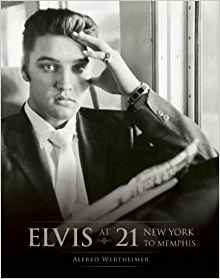
Wertheimer captures Elvis at the peak of his impact and beauty. There are many reflective pictures there, but Elvis obviously knows he’s being photographed, and perhaps for the first time in his life he seems for once to be disinterested in being himself. He has now decided that he wants to be James Dean.
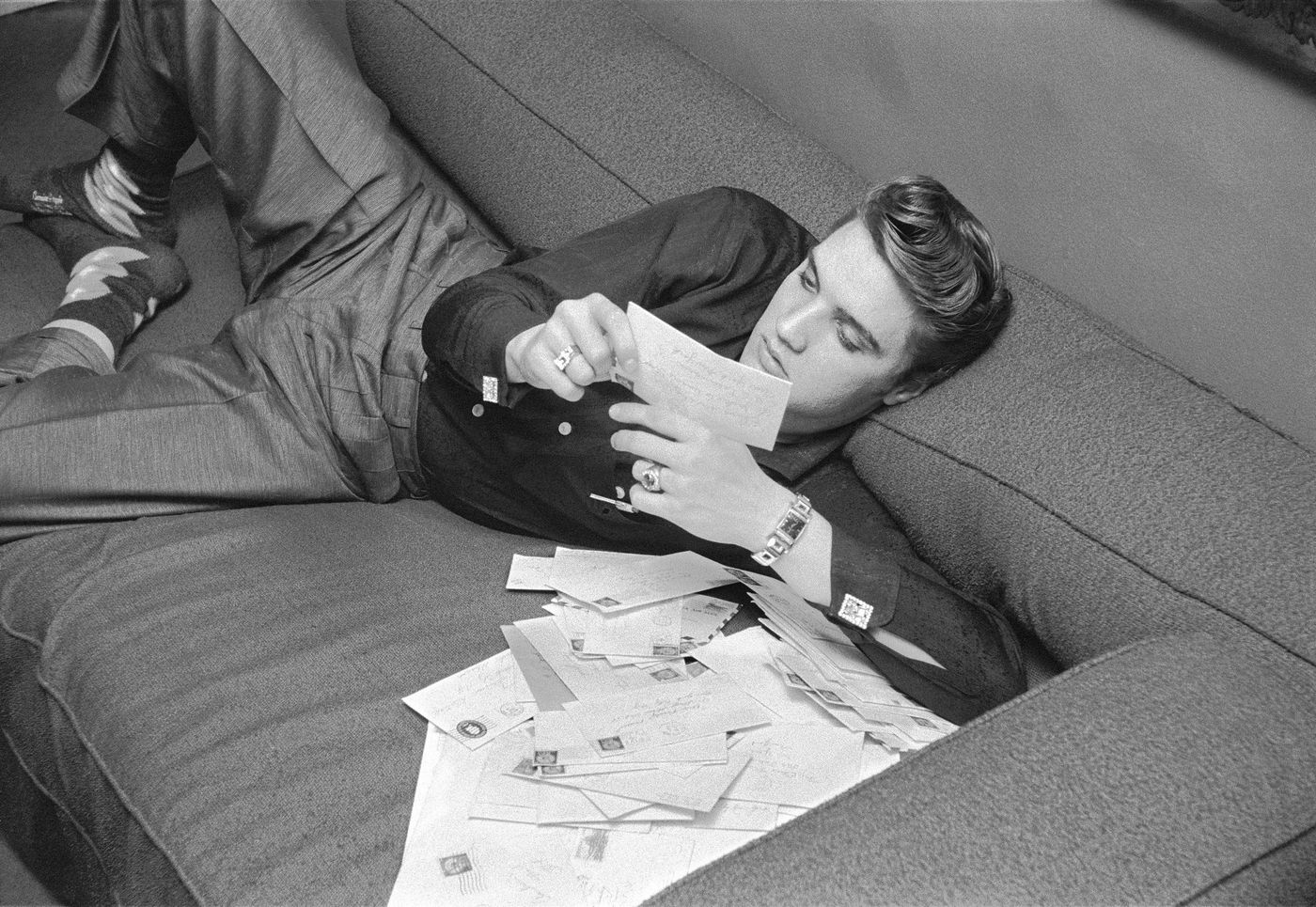
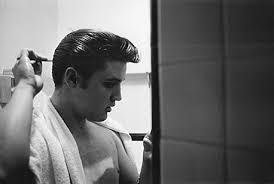
Now Elvis was always obsessed with his hair. He died it black as soon as he could to look just like Captain Marvel Jr., but now that he’s made the move from being onstage to being a star, it suddenly has to be at all times perfectly combed and done so exactly like Dean’s.
So yes, while musically he found his own path and voice, he did fall in love with the idea of replacing James Dean, and Dean would inform how he would look and pose for the next few years.
Movies were always a goal. They were indeed in that terrible deal he signed with Tom Parker on that day.
Now that clip comes from Elvis’ only real television interview and he’s wiped out and confused and weary.
He made the entire world go insane with his June 5, 1956 performance of “Hound Dog.”
For close to three weeks he’s been dealing with the fallout of what he thought was innocent, harmless fun.
He may worship that image of James Dean as a guy who doesn’t give a fuck about anything, but he is actually a really polite, humble kid, who cares very much what his beloved mother is hearing people say about him.
Now right before this interview, Tom Parker has sold him down the river and let Steve Allen, who absolutely hated everything about rock and roll and who Elvis is and where he came from, put him in a tuxedo and make him sing tamely to a basset hound. He’s enraged at Parker, he’s confused, his mother is panicked that their joint dream is turning into a nightmare. The bigger he has gotten the more she worries about his safety, she starts drinking a lot, she starts wishing she was poor again.
Elvis neither drinks or smokes, but even with his huge ambitions this is tearing himself up inside.
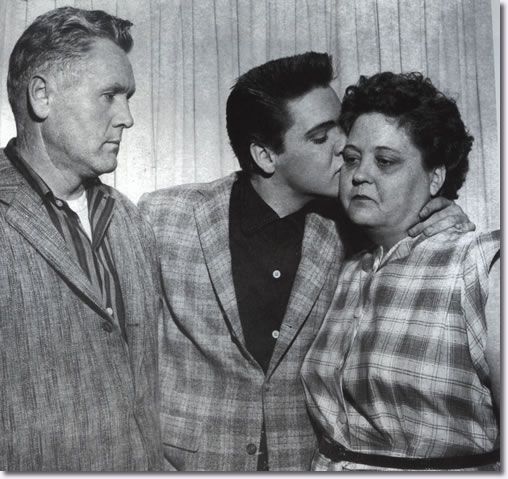
That picture was taken later when they both knew he was going into the army, but even though Elvis is gone a lot, he sees this coming. That is not a happy woman, and although Elvis has given her everything they both thought she wanted, he knows that this is happening. Those are not sophisticated people in that picture and Tom Parker is getting paid a ton of money to make sure that doesn’t happen, and he’s as responsible as anyone for it playing out exactly how it did.
So July 1, 1956, shit has gotten real on “Hy Gardner Calling” and its as real as Elvis is ever going to ever be in public until the day he died.
Look at his face and the film cut out when he is told that Tom Parker is handling his career perfectly. While doing his best to laugh off the tuxedo/Basset Hound incident politely (for his mother) do not forget for a second that he is seething inside.
Watch that 20 year old who has done everything for his parents especially his mother, have his morals and values completely besmirched. He is 100% sure that he has done absolutely nothing wrong, but be himself. Look at his face when he hears that people are claiming his music is causing kids to rebel against their parents, when he has been a role model and in every way been an example of the complete opposite. Look at this kid who grew up dirt poor have to explain to some New York schmuck his owning four Cadillacs that he has earned with his sweat and blood, watch him truthfully and humbly explain that he doesn’t own anything everything he seemingly has is really his parents.
Then look at his face when he first hears that some one said that he once shot his mother. His Mother!
So he humbly says that he is not a very good singer, when he is perhaps on his way to becoming the best singer of the 20th century, and hear him admit that he does want to be an actor, but that in no way is he one right now. He is going to work as hard as he can to be as good as he can, with the opportunity he now has, but when that telephone is hung up his acting career is instantly beginning.
He is going to the mattresses. He is circling the wagons. He is going to surround himself with only the people who were there with him before this happened. If you meet him in person he will be the humble good kid he really is, but the chances of that happening are growing slimmer and slimmer.
Publicly, from now on you will never see him this raw and disheveled again. Publicly, he is taking on a role of a lifetime. What happens among his inner circle stays there, and until at least 1968, he will mostly except for brief glimpses exchanged with people of the same passions who he trusts like Jackie Wilson.
They will continue to fuck with him over and over, but while he will remain humble and thankful, mostly out of self preservation he will become James Dean in “Rebel without a Cause.”
Musically he will still be him, acting wise he will try to find his own voice, but image wise he has just begun acting as James Dean.
Watch that complete interview over and over because that is the real Elvis Presley and you are seeing it for the last time.
Related Posts
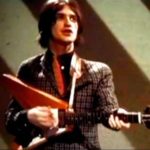 Sorry, I respect the Grateful Dead but have too much Dave Davies, Keith Moon, and everyone else to listen to
Sorry, I respect the Grateful Dead but have too much Dave Davies, Keith Moon, and everyone else to listen to My Essential 100 Albums and the Nolan Dalla Challenge Part Two: The Kinks – Perhaps We Are Going to Need A Bigger Boat
My Essential 100 Albums and the Nolan Dalla Challenge Part Two: The Kinks – Perhaps We Are Going to Need A Bigger Boat Uptight Sugar’s David Hamilton: Talk about the Passion
Uptight Sugar’s David Hamilton: Talk about the Passion Essential Albums: Marvin Gaye’s Here My Dear
Essential Albums: Marvin Gaye’s Here My Dear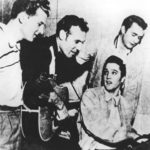 Essential Albums: Elvis Presley at Sun Records
Essential Albums: Elvis Presley at Sun Records My Essential 100 Albums: Sort of Taking on the Nolan Dalla Challenge – Part One: a Statement of Purpose
My Essential 100 Albums: Sort of Taking on the Nolan Dalla Challenge – Part One: a Statement of Purpose
